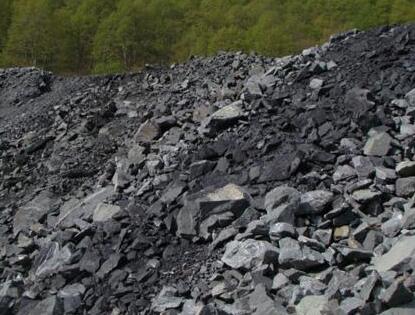Recently, Barrick, the world's second largest gold producer, is soliciting buyers for its Zambian lumwana copper mine, according to people familiar with the matter. Although the negotiation is still in its early stage and it is not sure that a deal can be reached, China Minmetals Group, Jiangxi copper (14.250, 0.01, 0.07%) and Zijin Mining (4.240, 0.04) are known, 0.95%) are considering bidding for the copper mine, which has a book value of about $735 million in the report, but Barrick believes that the price of the mine can reach about $1 billion. In addition, Luoyang molybdenum industry (4.280, 0.20, 4.90%) and Chalco (3.080, 0.01, 0.33%) were invited to participate in the bidding.
It's worth noticing that all potential buyers are Chinese mining enterprises, and they are top mining enterprises aiming to go global.
01
Unprofitable copper mines?
In May, Barrick gold said it had identified $1.5 billion worth of assets and was ready to complete the sale by mid-2020, including the lumwana mine to be sold.
In early 2019, Zambia began to implement the mining tax reform, which made local mining companies face great challenges. According to the report of Zambia mining financial system evaluation: 2009-2019, under the new system, with the change of copper price, the tax rate of mining companies will be as high as 86.3% - 105%, which is full of complaints from mining enterprises.
In fact, before the mining tax reform, Zambia's tax rate was already one of the highest in the world. Now, coupled with the unstable tax policy and high operating costs, the mine looks a bit weak.
However, it is undeniable that lumwana is still one of the top copper mines in Africa, and the overall situation is not so bad. However, Barrick gold's operating capacity in recent years is really not flattered. If it can make a good relationship in the local area, the copper mine is still very promising.
02
Chinese mining companies are speeding up globalization
Recent important progress in overseas investment of mining companies in China:
On the evening of October 8, 2019, Zijin announced that it would acquire the issued shares of Ivanhoe mining from CITIC metal and Robert Freeland. After the completion of the transaction, Zijin Mining's share of Ivanhoe mining company will rise from the current 9.8% to 13.88%, surpassing freiland as the second largest shareholder of Ivanhoe.
According to Reuters, an executive at China Gold International Resources Corp Ltd, an overseas branch of China Gold Group, said recently that iamgold Corp, a Canadian mining company, was in line with the company's strategy of seeking to acquire productive gold mines. He said China gold is considering $1 – 2 billion in deals in Canada, Latin America and Africa, but also projects worth around $500 million and smaller deals.
Jiangxi Copper recently acquired no more than 9.9% of the first quantum company in the secondary market, consuming about $800 million, according to koala mining watch. And the two sides have reached a standstill agreement. Any further increase of Jiangtong's holding needs to be approved by the first quantum management.
On September 13, 2019, China Railway (5.230, 0.01, 0.19%) announced that a joint venture composed of China Railway International and China Railway 10th Bureau, a wholly-owned subsidiary of the company, had won the construction general contract project of Salomon Jinling gold mine project, with a bid amount of about 825 million US dollars (about RMB 5.78 billion). According to the announcement issued on September 5 by Wanguo International Mining Group, the actual controlling party of the project, listed on the Hong Kong stock exchange, the contract is a construction and mining contract.
At present, the strategic contraction of western mining companies is really a good opportunity for China's mining companies, but the challenges we face are not small. We should be careful every step of the way, and make a comprehensive evaluation of every potential project, so as to avoid becoming a "contact man".
03
Overseas M & A needs to be rational
There are more and more successful overseas M & A projects in China, and the experience is accumulating.
However, even for successful M & A projects, the process is not smooth, and some results may only be unsatisfactory.
At the beginning of 2017, Rio Tinto reached a binding agreement on the sale of Australia's "United coal" and Yanzhou coal. Yanzhou Coal instinctively won the project at a relatively low price. However, Glencore, a Swiss mining giant, blocked the project several times and raised its offer many times. Although Yanzhou Coal won the project in the end, it can only be said that it won a "tragic victory".
Therefore, in addition to the detailed analysis and evaluation of regional policies, projects, prospects and other factors to avoid becoming a takeover Xia, Chinese mining companies should always be vigilant in the process of overseas M & A:
1. When competing with international mining companies, we should guard against malicious price hikes and other problems such as being disturbed by other mining companies.
2. Nowadays, the international industry is more inclined to attract Chinese mining enterprises into the Bureau and rely on them to raise the value of the project, taking advantage of the urgent mood of domestic mining enterprises to go out. China's mining companies should keep rational, avoid falling into the dilemma of "mutual competition", and finally cause "explosive" injury.
China's mining enterprises must be rational and avoid becoming "chess pieces" in the bidding process.
 Welcome to MiningComm Platform
Welcome to MiningComm Platform


 PPT Download
PPT Download Video Download
Video Download Return
Return MONTT GROUP
MONTT GROUP EMAIL:service@miningcomm.com
EMAIL:service@miningcomm.com TEL:0512-67629552
TEL:0512-67629552 ADDRESS:6/F, Block A, Suxin Mansion, No.88, Zhongxin Ave West, Suzhou Industrial Park, Jiangsu Province
ADDRESS:6/F, Block A, Suxin Mansion, No.88, Zhongxin Ave West, Suzhou Industrial Park, Jiangsu Province